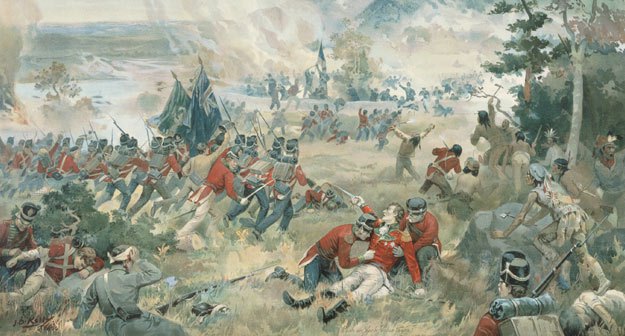A couple of weeks ago I had the pleasure of taking part in the Ryerson University Journalism Course Union’s Cabeer Night, an annual event that functions like a career night where students meet and talk to professionals - except it takes place in a bar, hence the addition of “beer” to the title. I’ve done a few of these before and I always enjoy them because talking to students is refreshing. There’s very little conversation about mortgages or child rearing, which are common topics among my regular social circles. Instead, aside from the natural career stuff, we usually discuss things like existentialism, gender roles and the plight of the proletariat. Fun stuff.
Cabeer Night at Ryerson is also great because it’s my baby. The lovely Tom Gierasimczuk, now the managing editor of Marketing magazine, and I started the JCU and Cabeer Night way back in the mid-nineties. Seeing both still going is a real kick and it takes me back to a simpler time, when hair was long and clothes were flannel. Ah… to quote David Lee Roth, where have all the good times gone? (By the way, how many sheets to the wind is Dave in that video?)
Anyhow, as always, this year’s Cabeer Night was stacked with a bunch of professionals journalists, including Ron Nurwisah from the National Post and Amanda Buckiewicz from Discovery Channel’s Daily Planet. Cabeer Night actually functions similar to speed dating - each professional sits at a table and students take turns moving to each, whereupon the pro dispenses advice on how to get a job in the industry. When we came up with the rules oh so many years ago, it made sense from the student’s perspective, but we never considered the pro’s point of view. That’s too bad because sitting on the other side now, I would have liked to have heard the advice my fellow journalists gave out. Truth be told, I have no idea how to get a job in journalism. Not only has the business changed dramatically since I was in school thanks to that dang internet, but the route to career success is different for everyone.
That said, the essence of the gig called for dispensing advice so I did have a few thoughts to share, which I figured I’d repeat here for anyone hoping to score a job in journalism.
One thing that has not changed despite all the upheaval in the business is the idea of who you know. This applies to just about all businesses, but journalists especially are networkers by nature. Aspiring journos need to get out and meet people, talk to them and connect with them. Just as the best stories come from getting out there and talking to people rather than sitting at a desk and hiding behind a phone or email, so too are the best connections made in person. I told some of the Cabeer Night students that they were already ahead of their peers simply by coming out to the event, because they were meeting real professionals who may some day be able to hire them or recommend to others who might.
Of course, there’s a fine line between networking and schmoozing. Getting to know professionals and connecting with them on topics of similar interest is one thing, but sucking up to them is another. It’s hard to define where one ends and one begins but generally speaking, it’s pretty easy to tell when someone is legitimately interested in a person as opposed to what that person can do for them. Finding this balance is one of the professional world’s trickiest-yet-necessary endeavours. The only advice I had there is to be genuine. Suck-ups can usually be spotted a mile away.
Another thing I urged students to do was to go somewhere else and work. I remember way back on the first day of journalism school, one of our profs told us that if we wanted a job after graduation, we’d have to move to Whitehorse. She was trying to scare us, but it was actually pretty good advice - and Whitehorse is a very nice place, at least for three months of the year. Going somewhere remote or, even better, some other country, is great for a number of reasons. For one, the Whoop Whoop Standard (I made that up, although it may actually exist) is an easier place to get a job than, say, the Toronto Star, but going abroad also shows employers back home a number of things: that you have balls, initiative and adaptability. Those are all very highly prized traits in the business.
Going abroad is also fantastic for more than professional reasons. On a personal level, it’s a great way to experience different cultures, perspectives and ways of doing things. That sort of thing not only makes you a better journalist, it also makes you a better person. I know a lot of people who have lived and worked abroad and just about all of them say it’s the best thing they’ve ever done, for both professional and person reasons. It can be hard at first, but as the old saying goes, nothing worthwhile is easy.
Rounding out my trio of career tips was urging everyone to write a blog and get involved with social media, such as Twitter. Some people say that blogs are a fad that has passed, but that’s overly simplistic. Blogs where people write about what they had for lunch may be passe, but those specializing on specific topics are more vital and important than ever.
The reasons for budding journalists to start and maintain a blog are many. First, just as with going abroad, it shows initiative - that the writer is a self-starter and can actually assign themselves. Secondly, it’s been said that writing is like a muscle, so a blog is a good way to exercise it, especially if you have no other outlets at a given time. Thirdly, and most importantly, blogs can be a way for opportunities to come to the would-be journalist, rather than the journalist always having to look for their own breaks. Most jobs require experience of some sort, so blogs are a good way of creating your own.
Let’s say you live in a smaller city in Ontario and want to be a sports journalist, but you have little experience. One smart thing to do would be to start your own blog wherein you regularly cover the local Ontario Hockey League team. If you do it long enough and well enough, eventually you’ll start showing up in Google search results. Then, when a player from your team gets called up to the NHL and the reporters from TSN go looking for information on him, your blog will show up. They may call you up and ask what you know about said player. Who knows, maybe they’ll even ask for a write-up. Voila - you’re on the big boys’ radar.
This isn’t a pipe dream. I have people contact me all the time with opportunities, simply because I run this blog. Not only does it give me a presence on the web, it also gives them an easy way to get in touch. I did an interview about my book on CNN International in Hong Kong a few months back, for example. Sex, Bombs and Burgers isn’t even available there, but the host of the show found me through her browsing and was interested enough to put me on.
Granted, not every blogger has years of experience or has published a book, but my story is only one of a multitude. Mathew Ingram, a friend and former colleague of mine, told me a little while ago that he’s had more opportunities come his way from his blog than from anything else he’s done. And he’s been a columnist for the Globe and Mail and the paper’s communities editor.
Twitter is also absolutely vital for any journalist. While the service is widely misunderstood as just another repository for people’s useless information, like what they had for lunch, it’s actually a real-time, personalized, two-way wire service for anyone who chooses to use it. Whether you’re interested in hockey or baking, there are people out there writing about the topic and talking about it on Twitter. This goes back to my first piece of advice - get out there and get engaged with these people. It may lead to new friendships, acquaintances and getting on people’s radars, not to mention keeping you up to date on everything in your field of interest.
Hopefully some of that will come in handy to all of you out there who are looking for a job in journalism. Again, I’m sure everyone working in the field has different advice so there’s no sure-fire way to do it. However, if any of my tips do help, remember that I take commissions in the form of beer.



